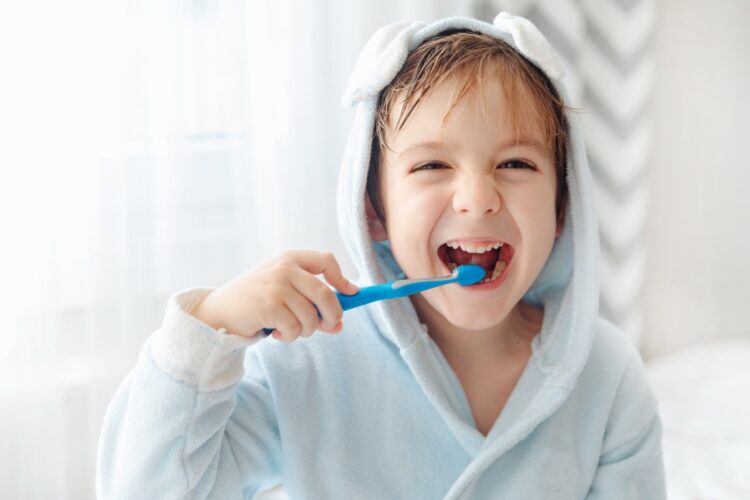Good oral hygiene is vital for both our children and adults. It’s important to develop good dental habits early on, like brushing twice a day and flossing regularly. But there’s one step that often gets overlooked: tongue cleaning. While it may sound strange at first, tongue cleaning can be an important part of your child’s oral care routine. Here’s why.
What Is Tongue Cleaning?
Tongue cleaning is the daily practice of scraping your tongue with a special brush or scraper, usually in the morning before breakfast. It’s been practiced for centuries in many cultures as part of a healthy oral hygiene regimen and it’s still widely used today.
What Is Flossing?
Flossing is the practice of using string-like floss to remove food debris, plaque, and bacteria from between the teeth. It’s recommended that everyone brush their teeth at least twice a day and floss once daily. Flossing helps prevent gum disease and tooth decay.
Bad vs. Good Bacteria
Tongue cleaning helps remove bacteria, food, and other particles that can accumulate on the tongue. The tongue is made up of small ridges and grooves where bacteria can hide and not be removed by brushing alone. These bacteria may cause bad breath or contribute to tooth decay, so it’s important to clean them off regularly with a tongue scraper or brush.
Benefits Of Tongue Cleaning
There are many benefits to daily tongue cleaning, especially for children:
- Fresher breath – Tongue cleaning removes bacteria and food particles that can cause bad breath. This helps keep their breath smelling fresh throughout the day.
- Improved taste – Removing bacteria from the tongue can help with food taste and even enhance appetite.
- Oral hygiene – Regular tongue cleaning helps remove bacteria that can contribute to tooth decay, cavities, and gum disease.
When it comes to children, tongue cleaning is also important because it can help children develop better eating habits. When debris and bacteria are removed from the tongue, children may be more able to taste their food correctly, which can encourage them to eat healthier foods.
How To Clean Your Child’s Tongue
It’s important to find a gentle and effective way to clean your child’s tongue. The best method is to use a soft-bristled toothbrush that is designed specifically for cleaning the tongue. Make sure you replace the brush every three months and use a separate brush for each family member.
Start by having your child tilt their head back slightly and stick out their tongue. Use a light touch when brushing the tongue and move the brush in gentle circles. Make sure you also brush the sides of the tongue as well as the top.
When finished, encourage your child to rinse their mouth with water or a mild mouthwash to help remove any remaining debris.
Cleaning Your Baby’s Tongue
It’s never too early to start practicing good oral hygiene, even for newborns. Before eating, parents should use a soft and damp cloth to gently wipe off any milk residue on their baby’s tongue. This not only helps with good oral hygiene, but it can also help promote the baby’s natural reflex to suck. As the baby grows, parents can begin to use a soft toothbrush designed specifically for infants to clean the tongue and other areas of the mouth. Be sure to use a tiny amount of non-fluoridated toothpaste and a gentle back-and-forth motion when brushing.
What Happens When Your Child Doesn’t Brush Their Tongue?
If your child doesn’t brush their tongue regularly, they may end up with bad breath and an uncomfortable feeling in their mouth. Over time, the bacteria can build up on the surface of the tongue, which can lead to cavities and gum disease. If this happens, it’s important to visit a pediatric dentist as soon as possible for proper treatment.
Helpful Children Tips For Maintaining Good Oral Hygiene Habits
- Encourage your child to brush and floss twice a day.
- Have your child use a soft-bristled toothbrush that is designed for tongue cleaning.
- Let them pick out their own toothpaste and mouthwash, this will help make it more fun and encourage better habits.
- Make sure they rinse with water or a mild mouthwash after tongue cleaning.
- Visit the dentist regularly for regular cleanings and checkups
Conclusion
Tongue cleaning is an important part of any oral hygiene routine, both for adults and children. By incorporating a daily tongue-cleaning practice into your child’s morning routine, you can help keep their breath fresh and reduce the risk of tooth decay and other dental problems.





